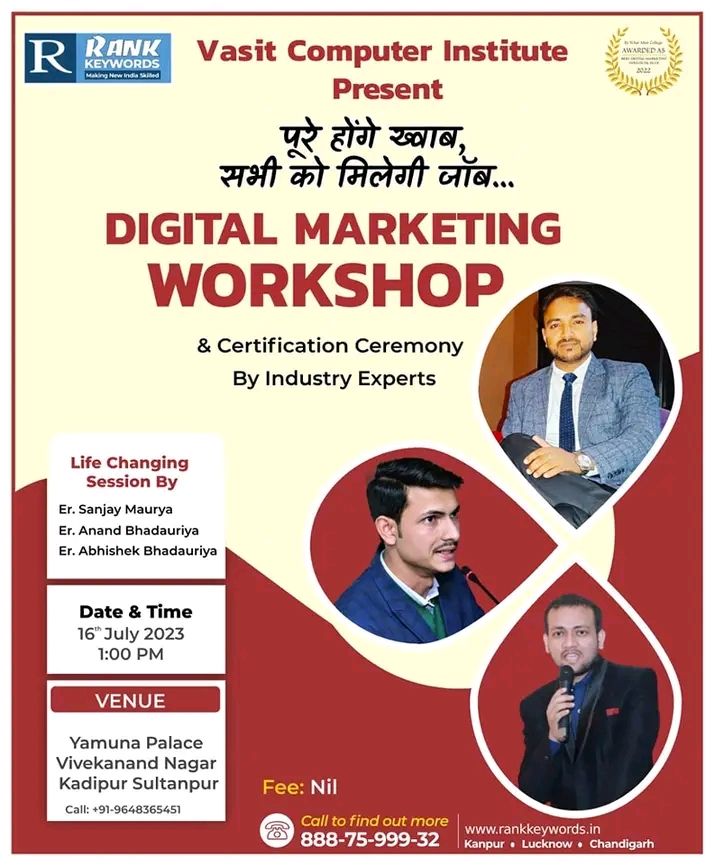
Seo Optimise Article on Website
Today we are taking about Digital Marketing related topics SEO. If you want to learn more about Digital marketing you can visit Rank keywords kakadeo Kanpur ( https://www.rankkeywords.in/) This is Best Digital Marketing Institute in North India.
Let's go our Topic -

How to Optimise SEO on website
To optimize an article on your website for SEO (Search Engine Optimization), you can follow these steps -
*Keyword Research:* Identify relevant keywords related to your article's topic using tools like Google Keyword Planner or SEMrush.
*Quality Content:* Write high-quality, informative content that addresses the user's query or problem.
*Title Tag:* Craft a compelling and keyword-rich title for your article.
*Meta Description:* Create a concise, engaging meta description that includes your target keyword.
*Header Tags:* Use header tags (H1, H2, H3, etc.) to structure your content and make it more readable.
*Keyword Usage:* Integrate your target keyword naturally throughout the article, but avoid keyword stuffing.
*Internal Links:* Include relevant internal links to other pages on your website.
*External Links:* Link to reputable external sources when appropriate.
*Image Optimization:* Compress and name images with descriptive filenames and alt tags.
*Mobile Optimization:* Ensure your website is mobile-friendly and loads quickly.
*User Experience:* Focus on providing a great user experience with a clean design and easy navigation.
*Social Sharing:* Add social sharing buttons to encourage readers to share your content.
*Regular Updates* : Keep your content fresh by updating it periodically.
*Schema Markup:* Implement schema markup to enhance how your content appears in search results.
*Page Speed:* Optimize page speed by compressing images, using a content delivery network (CDN), and minimizing code.
*Sitemap:* Submit a sitemap to search engines to help them crawl your site efficiently.
*Analytics:* Monitor your website's performance using tools like Google Analytics.
*User Engagement:* Encourage user engagement through comments, shares, and likes.
*Local SEO:* If applicable, optimize for local SEO with location-specific keywords and business information.
*SSL Certificate:* Ensure your website has a secure SSL certificate for data encryption.
SEO is an ongoing process, and it may take some time to see significant improvements in your website's search engine rankings. Be patient and continue to refine your SEO strategy over time.
Appreciate the creator